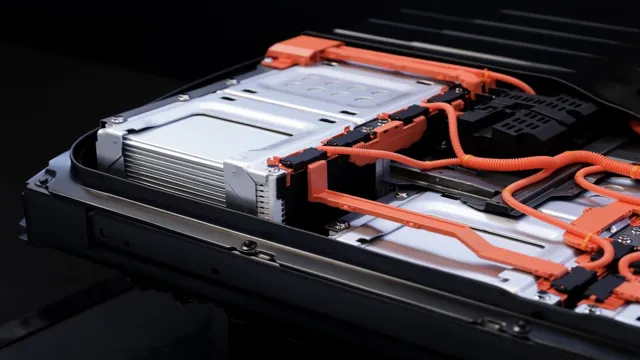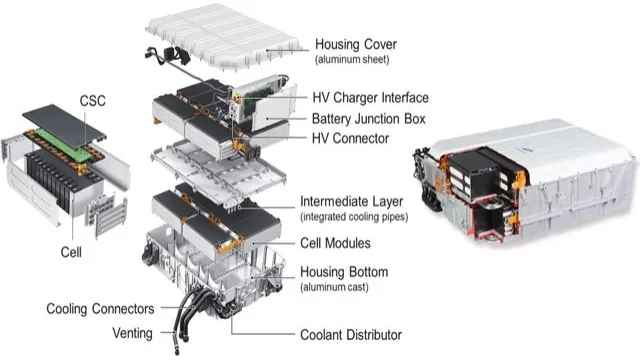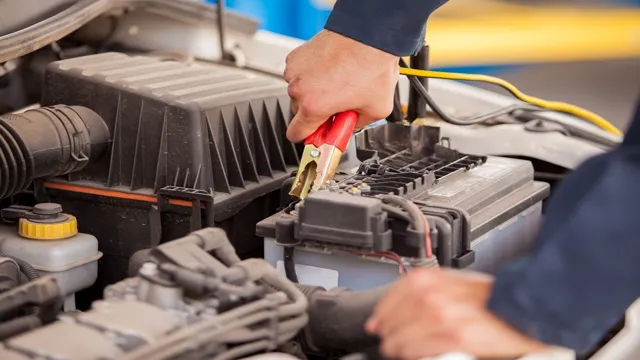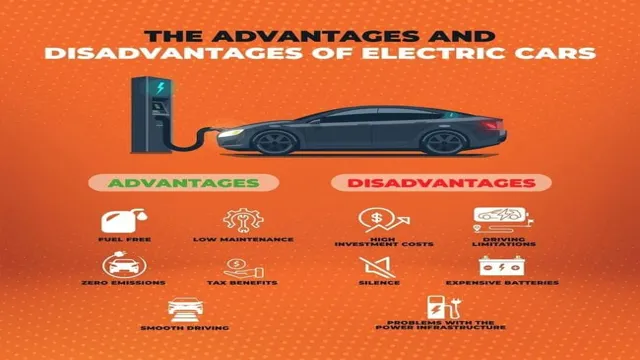The Shocking Truth About Electric Car Battery Prices – How Much Should You Expect to Pay?
As electric cars become more and more popular in today’s world, a crucial aspect to consider is the price of the battery. The cost of the battery packs is a major factor in the overall price of electric cars. Unlike traditional vehicles, electric cars require large battery packs to store enough energy to power their motors.
The amount of energy a battery can store determines the range of the car, and this, in turn, affects the usability of electric cars. Battery prices have been falling steadily over the years. This has enabled car manufacturers to produce electric cars with longer ranges, which in turn, makes them more appealing to consumers.
However, batteries still remain one of the most expensive components of electric cars, which directly affects the cost of the vehicles. The battle to produce affordable long-range electric cars is ongoing, and reducing the cost of batteries is key to winning that battle. Why is cost so important? Cheaper battery prices would make electric cars more affordable to the average consumer.
This would increase demand, which would lead to more investments in the electric vehicle industry. Increased investment will spur more innovations in battery technology and production, which will, in turn, lead to further cost reductions. This cycle of demand and innovation would drive the electric car industry forward, making sustainable transportation more accessible to everyone.
In conclusion, the cost of battery packs is a major factor in the affordability and usability of electric cars. As prices continue to decline, electric cars will become more appealing to consumers, leading to increased demand and further innovations in the industry. This shift towards sustainable transportation is important for a greener future, and reducing battery costs will help make that future a reality.
Current state of battery pricing
The cost of batteries has been a significant factor in the adoption of electric cars. However, recent years have seen a significant decline in the prices of batteries, making electric cars more accessible. According to a report by Bloomberg NEF, the price of lithium-ion batteries has reduced by 87% since 20
This decline is due to several factors, including advancements in technology, mass production, and the entry of new players into the market. The reduction in battery prices has also made it possible for manufacturers to produce electric cars with a longer range. With the current trend, the price of batteries is expected to continue to decline, making electric vehicles even more affordable and practical for average citizens.
This development is great news for the environment, as increasing the use of electric cars will help reduce the amount of greenhouse gas emissions produced by traditional gasoline cars.
Average cost per kWh
The current state of battery pricing is fascinating, and many people are curious about the average cost per kWh. The average cost of kWh has been decreasing over the years, thanks to advancements in technology and greater economies of scale. In 2010, the average cost per kWh was around $1000, but in 2020, it had dropped to around $13
This substantial price reduction is primarily due to the increase in demand for electric vehicles and renewable energy sources. With more researchers and companies exploring sustainable energy solutions, the future of battery pricing looks bright. However, it is worth noting that there are still challenges to overcome, primarily when it comes to raw material availability and production costs.
Overall, it will be interesting to see how the market will evolve in the coming years as more breakthroughs and technological advancements are made.

Factors affecting battery price
When it comes to battery pricing, several factors play a significant role in determining the final cost. The current state of battery pricing is largely influenced by the cost of materials used in manufacturing the batteries. With the increase in demand for electric vehicles, the demand for key materials such as cobalt and lithium has gone up, leading to a rise in their prices.
Additionally, the cost of battery production technology, such as machinery and equipment used in the manufacturing process, also serves as a deciding factor. The production process itself is complex and requires multiple stages, increasing production costs further. Finally, the cost of battery storage is also taken into account.
The higher the capacity of the battery, the more expensive it will be. All of these factors combined contribute to the final price of a battery. As technology evolves, and the demand for electric vehicles continues to rise, we can hope for advancements in manufacturing technology and availability of materials to bring down the high cost of batteries and make electric vehicles more affordable.
Impact of battery price on electric car market
The price of batteries has a significant impact on the electric car market. As battery prices decrease, the cost of manufacturing electric cars drops, making them more accessible to consumers. The trend is becoming apparent as top electric car manufacturers such as Tesla, Nissan, and General Motors aggressively push battery technology development and production.
This drive towards the reduction of battery costs has resulted in many manufacturers utilizing more affordable battery cells for their vehicles. It has been said that the manufacturing costs of electric cars may even soon surpass traditional vehicles. Consequently, we see a rise in the number of electric vehicles on the road, and this trend will likely continue as the price of batteries plummets in the coming years.
Consumer demand and pricing
The battery price is a key factor influencing the electric car market. The production cost of batteries is significant, and it affects the final price of an electric car. Most consumers are price-sensitive when it comes to buying cars, and this makes pricing a critical consideration for manufacturers.
With the price of batteries falling steadily in recent years, electric cars have become more affordable for consumers. In addition to lower prices, electric cars also offer reduced costs of running, which makes them more appealing to potential buyers. The battery price also impacts the range of an electric car, with a larger battery contributing to a longer range.
Manufacturers are therefore challenged to offer the best balance between pricing and range to ensure they deliver the maximum value to consumers. As such, battery prices are a significant factor shaping consumer demand and pricing in the electric car market.
Competition among automakers
In today’s competitive market, automakers are constantly seeking new ways to improve their electric vehicles (EVs) and gain an edge over their rivals. One key factor that impacts the competitiveness of these cars is the price of their batteries. As battery technology progresses, the price of these batteries is steadily declining, making EVs more accessible and affordable to the average consumer.
This means that automakers who can produce more affordable EVs are more likely to attract customers and gain market share. However, while declining prices are making EVs more affordable, they still tend to be more expensive than their gasoline-powered counterparts. Thus, automakers must balance the cost of battery technology with the need to remain competitive in an ever-changing market.
Ultimately, it will come down to which automakers can produce the most cost-effective and reliable EVs to win over consumers who are increasingly concerned about the environment and sustainability.
Government incentives and regulations
When it comes to electric cars and their impact on the environment, government incentives and regulations play a significant role. However, another factor that affects the growth of the electric car market is the cost of batteries. As batteries make up a significant portion of the cost of an electric car, any fluctuation in their price can have an impact on consumer demand.
Currently, the price of batteries is decreasing, making electric cars more affordable and accessible to the masses. This decrease is partly due to the growing demand for batteries in other industries, such as energy storage. As more companies invest in battery technology, the prices are likely to continue decreasing, making electric cars a more attractive option for consumers.
In conclusion, the battery price has a crucial role to play in the uptake of electric cars. As prices continue to decline, more consumers will be willing to make the switch from traditional gasoline-powered cars to electric cars, ultimately benefiting the environment and our future.
Future of battery pricing
The future of battery pricing is an important topic in the electric car industry. While electric vehicles are becoming more popular, the high cost of batteries remains a barrier to widespread adoption. However, recent advancements in battery technology and production processes have led to a significant decrease in prices.
The cost of batteries has declined by 80% since 2010, and it is expected to continue to decrease. This downward trend is due to the economies of scale in production, improved manufacturing techniques, and increased competition among battery manufacturers. Combined with government incentives, it is likely that electric car prices will become more affordable for the mainstream market.
This will further drive the growth of electric vehicles and accelerate the transition to a greener future. Overall, the future looks promising for the battery price of electric cars.
Expected technological advancements
In the coming years, we can expect a significant drop in battery prices as technological advancements continue to emerge in the field of battery storage. With increasing demand for renewable energy sources, battery technology is becoming more and more vital. The rise of electric vehicles and the need for more efficient energy storage systems in homes and industries will push for the development of more cost-effective and sustainable batteries.
Companies like Tesla and Panasonic are already working on developing batteries that offer improved performance and longer lifespan at a lower cost. Additionally, the increasing use of renewable energy sources like solar and wind energy is also driving down battery prices. As more and more people adopt solar panels and wind turbines, the demand for batteries to store excess energy will increase, leading to a decrease in prices.
It’s an exciting time for battery technology, and we can expect to see significant changes in the coming years, making sustainable energy more accessible and affordable for everyone.
Forecasts for battery price decrease
The future of battery pricing seems bright, with forecasts indicating a significant decrease in the cost of batteries over the next decade. This positive outlook is due in large part to advancements in the technology and production of batteries, making them more efficient and cost-effective to manufacture. As more and more companies invest in research and development of batteries, we can expect to see a continued downward trend in prices.
This will be especially beneficial for the electric vehicle market, where battery costs make up a significant portion of the total vehicle cost. With decreasing prices, we can expect to see more affordable, high-quality electric vehicles available to consumers. This shift towards more sustainable transportation options will undoubtedly shape the future of mobility and help to reduce our carbon footprint.
Overall, the outlook for battery pricing is promising, and we can expect to see continued progress in this field.
Conclusion
In conclusion, the cost of batteries for electric cars has been a hot topic in the automotive industry. However, as technology advances and demand increases, we can expect these prices to come down. In the meantime, let’s remember that investing in an electric car is an investment in the environment and our future.
And just like any investment, it may cost a bit more upfront, but in the long run, it pays off in more ways than one – both for our wallets and our planet. So, let’s charge forward and embrace the electrification of our transportation system!”
FAQs
What is the average cost of an electric car battery?
The average cost of an electric car battery is around $5,500 to $7,000.
How long does an electric car battery last?
The lifespan of an electric car battery can vary, but most manufacturers guarantee their batteries for eight years or 100,000 miles.
Can you upgrade an electric car battery?
Some electric car manufacturers do offer the option to upgrade the battery of their vehicles. However, it can be expensive and may not be worth the investment for some owners.
How do electric car battery prices compare to traditional gas-powered car maintenance costs?
While electric car battery prices initially may seem expensive, they can save owners money in the long run due to lower maintenance costs compared to traditional gas-powered cars.





